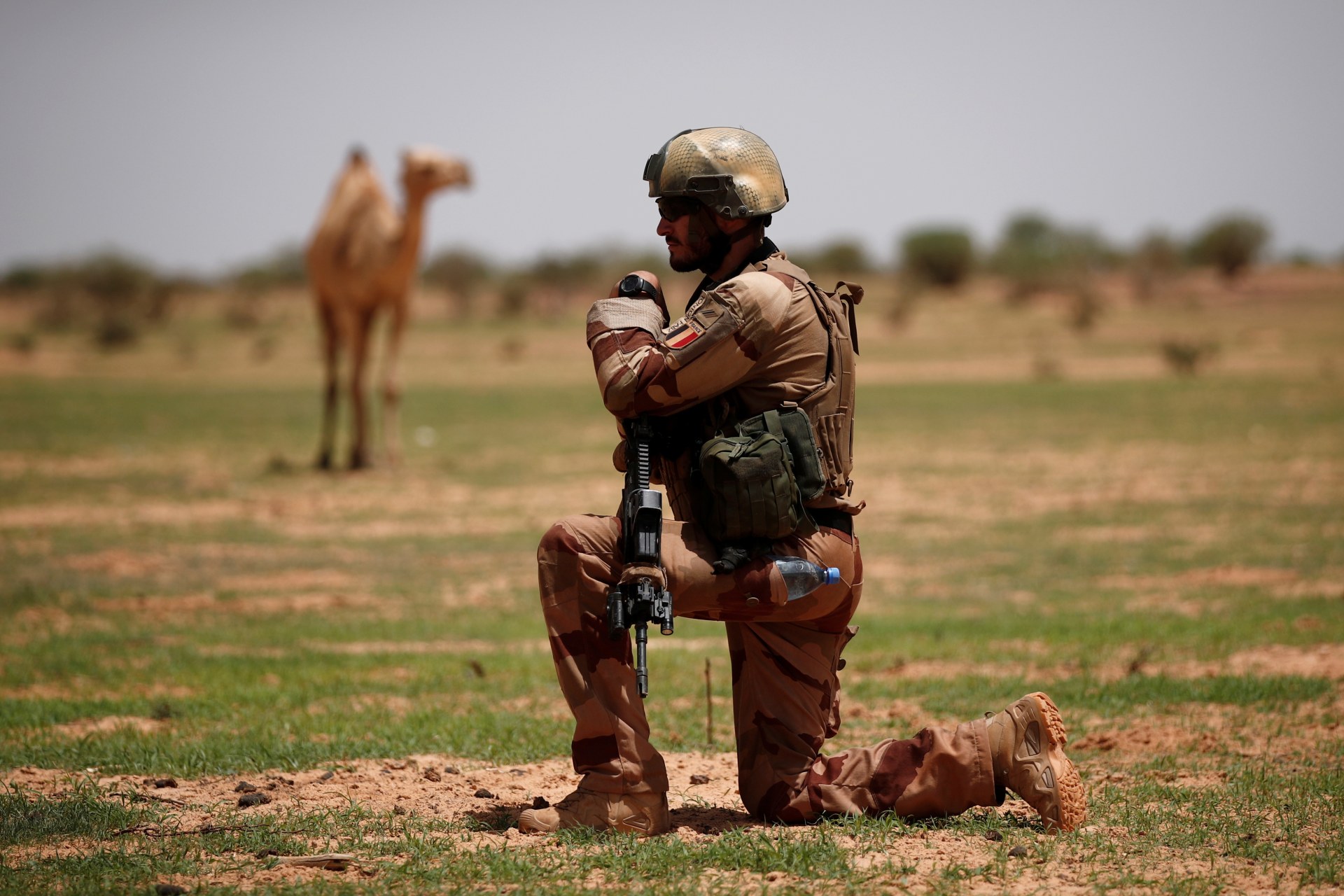Foreign Troops Fighting Jihadists in the Sahel Face Criticism as Terror Grows

By experts and staff
- Published
By
- John CampbellRalph Bunche Senior Fellow for Africa Policy Studies
In response to the proliferation of ostensibly jihadist groups in the Sahel, governments have deployed more than 20,000 international and local troops, comprising 4,500 French soldieries, 13,000 UN peacekeepers, and about 5,000 troops connected to the G5 Sahel—an initiative godfathered by France and including Burkina Faso, Chad, Mali, Mauritania, and Niger. But terror groups have grown more deadly.
Earlier this month, the Islamic State claimed responsibility for an attack that killed fifty-three soldiers and a civilian at a military base near the Malian-Nigerien border. Operating in the Sahel through its affiliate, the Islamic State in the Greater Sahara (ISGS), it has accelerated its operations in Mali, Burkina Faso, and now in Niger, despite a significant military presence. By the end of 2019, it is predicted that ISGS will have been responsible for six hundred killings.
The relationship between the Islamic State and its affiliates (and between affiliates) in the region, principally ISGS and the Islamic State in West Africa, are unclear. Fighters can have a variety of motivations, such as disillusionment with their government, poverty, or a lack of economic opportunity, and their focus appears to be drive principally by local factors, as opposed to international jihad.
According to French media, there is growing indigenous resentment of these foreign troops, and much of it seems specifically directed at those from France. They are seen as closely tied to local country governments, which are often perceived as exploitative and out of touch with the people they ostensibly govern. For example, Ibrahim Kebe, host of a Malian anti-government radio station, characterized the African governments involved as “national lackeys under the orders of Paris,” and that “in the name of the French people, the multinationals are pillaging our resources.”
The Sahel is among the poorest regions in the world. The natural environment is delicate but harsh. It is true that there are great mineral and other riches, but their exploitation has not benefitted the people who live there. Political realities are intensely local and complicated; they are often misunderstood in national capitals, much less in Paris or Washington. A foreign military presence is bound to be disruptive, but that political granularity means that it is difficult for outsiders to judge how widespread resentment of outside forces is, or what the political impact is.